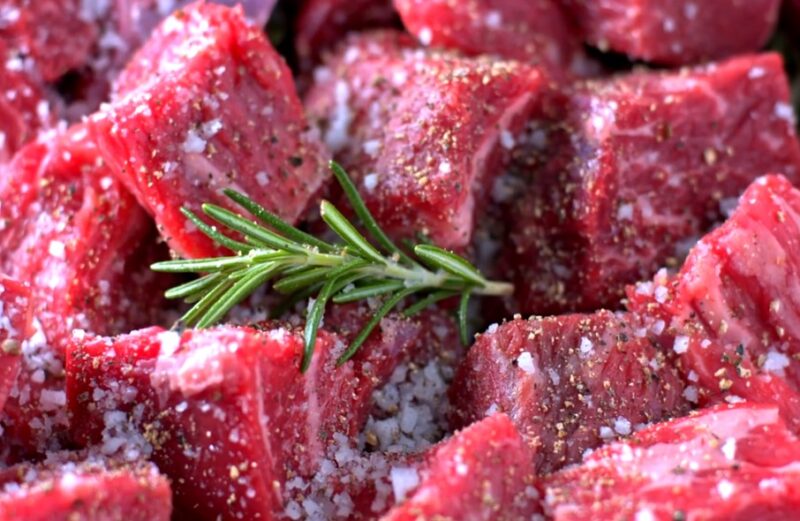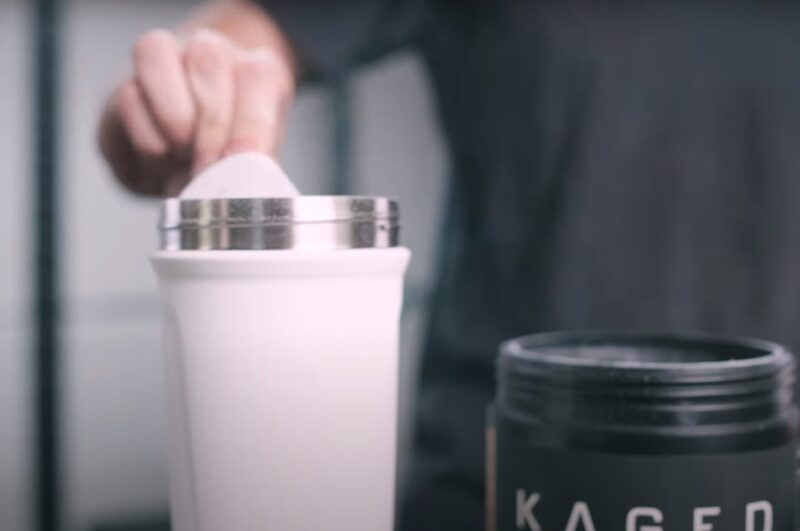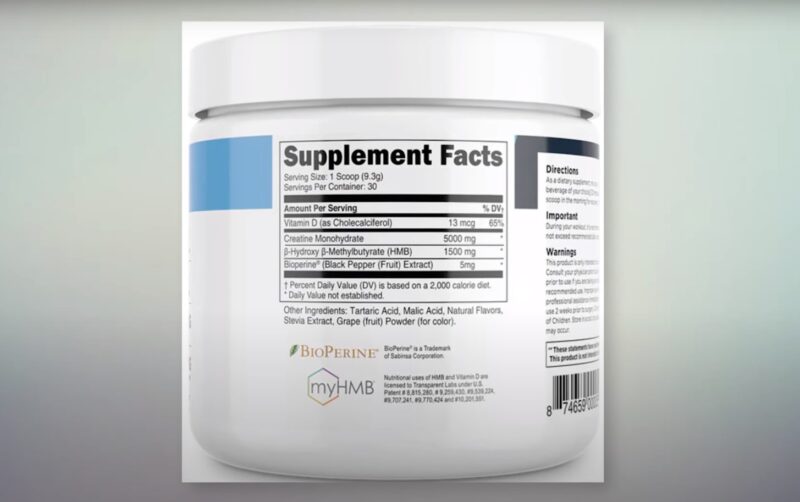The answer is multifaceted, depending on the origin and processing of the creatine in question.
Vegan athletes and fitness enthusiasts are particularly interested in this matter, as creatine is a popular supplement known to enhance performance.
With the rise of veganism, the supplement industry has adapted, providing vegan-friendly creatine. This form of creatine is not derived from animal sources. Instead, it is synthesized in laboratories through a process involving vegan-friendly raw materials.
The availability has opened up a new world of nutrition and supplementation for vegans, ensuring they can reap the benefits of creatine without compromising their dietary choices. Consumers should be aware, however, that not all creatine supplements are vegan.
It’s important to read labels carefully and understand the production process to ensure the supplement fits within vegan guidelines.
Key Takeaways
Overview
Creatine is a naturally occurring compound found in muscle cells. It plays a crucial role in energy production, particularly during high-intensity, short-duration activities such as weightlifting or sprinting. The body synthesizes creatine primarily in the liver and kidneys from the amino acids: glycine, arginine, and methionine. Additionally, it can be obtained directly through dietary sources, mainly from meat and fish.
Daily creatine supplementations has positive research showing it can help increase your strength, power and lean body mass. That’s why it is so popular among bodybuilders and gym-goers. But there is also some lesser-known research showing potentially positive impacts on things like brain health.
according to Fitness Instructor Ben Carpenter
Chemical Structure
- Formula: C₄H₉N₃O₂
- IUPAC Name: Methylguanidinoacetic acid
From a biological standpoint, creatine is stored in muscles in the form of phosphocreatine. During physical exertion, phosphocreatine donates a phosphate group to ADP (adenosine diphosphate), thereby regenerating ATP (adenosine triphosphate), which is the energy currency of cells.
Supplementation with creatine provides various benefits including:
- Increased muscle mass
- Enhanced strength
- Improved exercise performance
- Potential cognitive benefits
It’s important to clarify that most supplements contain creatine monohydrate, a form that’s identical to the creatine produced in the body. This powdered form is then mixed with liquids and taken to enhance physical performance and muscle growth. Creatine supplements are widely used by athletes and bodybuilders due to these purported benefits.
Creatine is produced endogenously at an amount of about 1 g/d. Synthesis predominately occurs in the liver, kidneys, and to a lesser extent in the pancreas. The remainder of the creatine available to the body is obtained through the diet at about 1 g/d for an omnivorous diet. 95% of the bodies creatine stores are found in the skeletal muscle and the remaining 5% is distributed in the brain, liver, kidney, and testes
As noted in this study
Sources of Creatine
Dietary sources of creatine include meats and fish. Large amounts of fish and meat must be consumed in order to obtain gram quantities of creatine. Whereas dietary supplementation of creatine provides an inexpensive and efficient means of increasing dietary availability of creatine without excessive fat and/or protein intake.
according to a study from NCBI
1. Animal-Based Sources

Creatine is naturally abundant in various animal-based foods. Here are some specific examples:
- Red meat: A primary source, such as beef or lamb
- Fish: Including salmon and tuna, which contain significant amounts
- Poultry: Chicken and turkey are also good sources of creatine
These foods offer the highest concentrations of creatine, which is beneficial for those looking to increase their creatine intake naturally.
2. Plant-Based Sources

While creatine is not found naturally in plant foods, there are synthetic creatine supplements that cater to vegan and vegetarian diets. These supplements are derived from non-animal sources, ensuring compliance with plant-based diets. For more information, refer to the Vegan Foundry’s insights on vegan creatine sources.
Plant-based individuals might also be interested in certain foods that support the body’s natural creatine synthesis. This includes:
- Nuts and seeds: Such as almonds and pumpkin seeds
- Legumes: Beans and lentils can support creatine production
- Whole grains: Like quinoa and buckwheat
Although these foods do not contain creatine, they provide amino acids that are important for its synthesis in the human body.
Production Process

The production of creatine involves a sophisticated series of chemical reactions. Manufacturers ensure purity and suitability for vegans through meticulous chemical synthesis and thorough extraction and purification.
1. Chemical Synthesis of Creatine
The commercial synthesis of creatine typically begins with two main ingredients: sarcosinate and cyanamide.
These substances react in the presence of catalysts to form creatine in a multistep process known as the Guerbet reaction.
Interestingly, most creatine supplements use this synthetic route, which is devoid of animal products, aligning with vegan standards.
2. Extraction and Purification
Following synthesis, the fresh creatine mixture undergoes rigorous extraction and purification steps. This ensures the removal of impurities and unwanted by-products. The final product—a pure creatine monohydrate—is obtained through crystallization, centrifugation, or filtration.
Evaluation of Vegan-Friendly Creatine

When assessing vegan-friendly creatine, one must discern whether the product is derived from animal sources or synthesized chemically. The majority of creatine supplements available on the market are, in fact, vegan. They commonly contain creatine monohydrate, synthesized from non-animal origins. This form of creatine is generally recognized as safe for vegans.
One critical aspect consumers should consider is the capsule form of creatine supplements.
While the creatine itself may be vegan, capsules often contain gelatin, an animal-derived substance.
Reflecting on the study provided by NCBI
To avoid this, vegans must check ingredient lists meticulously.
It’s equally important for vegans to understand the source of their creatine:
- Dietary creatine is primarily found in animal products.
- Supplement creatine is synthesized from vegan-friendly compounds.
Common Creatine Supplements

When considering creatine supplements, consumers predominantly encounter three types: Creatine Monohydrate, Creatine Ethyl Ester, and Buffered Creatine. Each type offers different benefits and absorption rates that cater to various fitness goals and dietary requirements.
1. Creatine Monohydrate
Creatine Monohydrate is the most extensively studied and commonly used form of creatine in supplements. It is considered the gold standard due to its well-established safety profile and efficacy in increasing muscle mass and strength.
2. Creatine Ethyl Ester
Creatine Ethyl Ester is marketed as a more rapidly absorbed variant of creatine with a higher bioavailability. However, studies suggest that it might not be as effective as creatine monohydrate in terms of enhancing muscle performance.
3. Buffered Creatine
Buffered Creatine, often known as Kre-Alkalyn, is a form of creatine that claims to produce fewer side effects like bloating and cramping. Manufacturers assert that its higher pH level leads to better absorption and less creatine breakdown in the stomach.
Mythbusting

There are several misconceptions surrounding vegan creatine that are important to address.
Myth 1: Vegan Creatine Is Less Effective Many believe that creatine derived from non-animal sources is less potent. However, the efficacy of creatine is not dependent on its origin but rather its purity.
Myth 2: All Creatine Supplements Are Vegan Contrary to popular opinion, not all creatine supplements are vegan even if the creatine itself is synthesized. Some products may contain additives or are encapsulated in gelatin. Vegans should ensure that the whole product is free from animal derivatives.
Myth 3: Vegetarians and Vegans Don’t Need Creatine Supplements While it’s true that our bodies synthesize creatine, vegetarians and vegans typically have lower levels because they do not consume animal flesh, which is a natural source. Supplementation can help to maintain optimal levels of creatine.
Myth 4: Creatine Is Only for Bodybuilders Creatine supplementation is often associated with weightlifting, but it benefits anyone involved in activities requiring quick bursts of energy, including vegan athletes across various sports.
Fun Fact: With over 200 years of research, creatine is not only one of the safest supplements for long-term use but also among the most cost-effective for muscle and strength gains.
Health Considerations

Vegans need to be aware of their daily creatine intake and potential nutrient deficiencies due to the absence of animal products in their diet.
Daily Requirements
The body typically synthesizes about 1 gram of creatine per day, but this can be lower for vegans. Although there is no official daily requirement, supplementation can help meet the body’s needs, especially for those engaged in high-intensity activities.
Potential Deficiencies
Creatine is not found in plant foods; hence vegans may have lower levels of creatine in their muscles. This can affect muscle function and overall energy levels. Vegetarian sources of creatine are negligible, and thus, vegan-friendly synthesized supplements are recommended to prevent deficiencies. It’s advised to select supplements carefully, as some may come in capsules that contain gelatin, which is not vegan-friendly.
Creatine supplementation in vegetarians is effective for increasing creatine and phosphocreatine levels to an extent that vegetarians may achieve higher levels of creatine and phosphocreatine after supplementation, compared to omnivores (i.e., it appears that the lower baseline levels in vegetarians might allow for “super compensation” of creatine or phosphocreatine levels with supplementation.
Reflecting on a study from above.
Certification of Vegan Products

When choosing vegan products, certifications ensure the absence of animal-derived ingredients and non-compliance with animal testing. These certifications help consumers identify genuinely vegan products.
Labeling and Standards
Vegan labeling involves specific criteria that products must meet to be considered vegan. This includes the exclusion of animal-derived components such as meat, dairy, eggs, and honey, and by-products like silk or dyes from the manufacturing process. Standards also stipulate that vegan products must not be tested on animals, ensuring the ethical treatment of animals is upheld.
Criteria for Vegan Labeling
- No animal ingredients
- No animal by-products
- Absence of animal testing
For a product to display a vegan certification label, it has to comply with these stringent standards, which are often set forth by reputable vegan organizations or certifying bodies.
Examples of Third-Party Verifiers
- Vegan Action
- The Vegan Society
They ensure the reliability of vegan claims and provide reassurance to consumers through recognizable certification logos. This additional layer of scrutiny is vital for maintaining consumer trust and the integrity of vegan products on the market.
Recommended Brands
- Transparent Labs Creatine HMB: Offering a blend of creatine and HMB, this product is designed to support muscle strength and aid recovery.
- Optimum Nutrition Creatine Powder: Well-known for purity and quality, their micronized creatine powder is a favored choice among vegans.
- BulkSupplements Creatine Monohydrate: A straightforward, no-frills option for pure creatine monohydrate.
- Genius Creatine Powder: Genius combines various forms of creatine to enhance absorption and efficacy.
Each of these brands ensures that their creatine products are suitable for vegan customers.
Frequently Asked Questions
What are the sources of creatine in a vegetarian diet?
Creatine is naturally produced by the liver and kidneys from amino acids. In a vegetarian diet, the body’s synthesis is the primary source since creatine is not found in plant-based foods.
Can vegans experience side effects from creatine supplements?
Vegans might experience side effects similar to those of non-vegans, such as bloating or water retention. However, these side effects are generally mild and can be minimized with proper hydration and dosage.
How does creatine supplementation differ between vegan and non-vegan athletes?
Vegan athletes may benefit more from creatine supplementation, as their baseline levels of creatine tend to be lower due to the absence of dietary meat and fish, which are natural sources of creatine for non-vegans.
Are there vegan-friendly brands of creatine supplements?
Yes, some brands offer vegan-friendly creatine supplements. Buyers should look for products labeled as pure creatine monohydrate to avoid animal-derived ingredients.
How is commercial creatine produced?
Commercial creatine is typically synthesized in a lab setting from sarcosinate and cyanamide. The process does not involve animal products, making most commercial creatine supplements inherently vegan.
Do plant-based foods contain any form of creatine?
Plant-based foods do not contain creatine. Vegetarians and vegans typically have lower levels of creatine, which is why supplementation could be beneficial to support muscle energy and overall athletic performance.
Final Words
For vegan athletes and fitness enthusiasts, the advent of lab-synthesized, vegan-friendly creatine supplements has been a game-changer.
These supplements ensure that vegans can enjoy the performance-enhancing benefits of creatine without compromising their ethical or dietary principles.
By choosing certified vegan creatine products and paying close attention to labels, vegans can effectively incorporate this valuable supplement into their nutrition regimen, supporting both their health and athletic performance.

